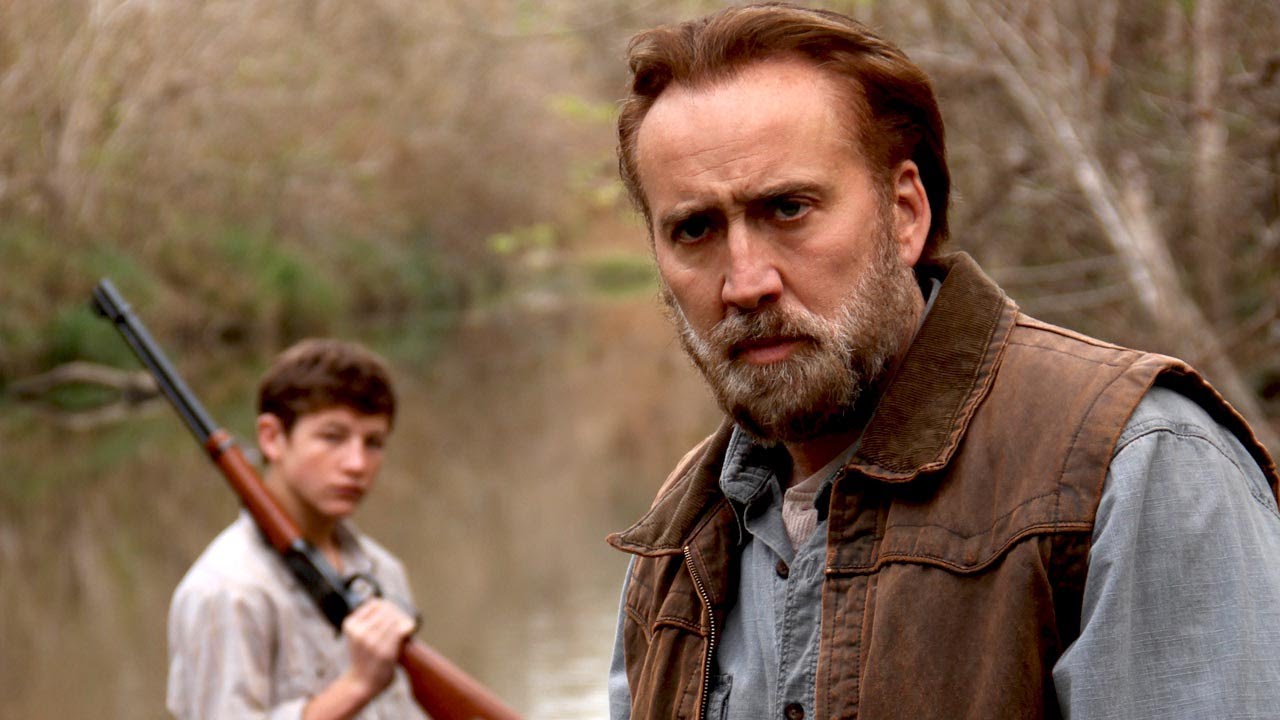
There is not a more divisive American actor working in mainstream movies today than Nicolas Cage. To many he is a joke, overacting his way through low quality movies that don’t have much staying power past becoming fodder for Youtube sketches and internet memes.
To others, he once showed promise, but is now a has-been who is currently overacting his way through low quality movies that can’t seem to find much of an audience past being parodied on… Well, Youtube sketches and internet memes.
To yet another set of audiences, however, Nicolas Cage is neither a joke nor a has-been, he is, was, and will always be an (wait for it…) undeniable National Treasure.
Cage’s significantly unique onscreen talents (obsessive attention to detail, intentionally operatic gestures, line readings that are scored and rehearsed like musical notes) showcase an artistry and craftsmanship that is usually reserved for theatre, dance, or highly physical and stylized comedy.
When he’s cast in the right role, Cage’s acting style works like nothing else. When he’s not, even Cage’s most ardent admirers have to admit that his performances can seem strained, out-of-place, and over-rehearsed.
“Nouveau Shamanic” is the name Cage himself gave to his acting style, a “larger than life” form of “Western Kabuki”, as he told he L.A. Weekly in 2014. The rest of us will have to wait for the book before we fully understand what that means, but those who are even halfway familiar with Cage’s body of work should have more than a good idea of what the title entails.
Whatever the case may be, it’s a label that simply sounds correct in explaining the process of a man who once listed Marlon Brando, Jerry Lewis, Picasso, and his pet octopus as some of his biggest acting influences.
No other actor can truly compete with the diversity of Cage’s long career in the movie business. Who else got to enjoy being a badass (though arguably tongue-in-cheek) action star in the nineties after winning an Oscar for a gritty indie about alcoholism, prostitution, and suicide?
What other actor from Cage’s generation has worked with more of the greatest filmmakers (Francis Ford Coppola, Martin Scorsese, David Lynch, Brian De Palma, Oliver Stone, Werner Herzog, Alan Parker, Paul Schrader, Ridley Scott, the Coen Brothers) of our time?
Comedy, drama, fantasy, science fiction, thrillers, Bruckheimer action flicks, small indie dramas, large-scaled epics… Cage has literally done it all. Sometimes it works, sometimes he flounders, but he never fails to take risks that are, at the very least, highly interesting.
With over thirty-five years in the movie business and over eighty acting credits to his name, Nicolas Cage has certainly had his ups and downs, but he has never entirely gone away. As the films on this list represent, there are many great performances that he has given throughout his career that simply aren’t as recognized or appreciated as they should be.
Some have been forgotten far too quickly, others unjustly criticized, misunderstood, or deemed far too strange and odd to be given any consideration or time whatsoever… Except for, of course, the many references and clips that can be found in numerous Youtube sketches and internet memes.
10 (tie). World Trade Center (2006) and Snowden (2016)
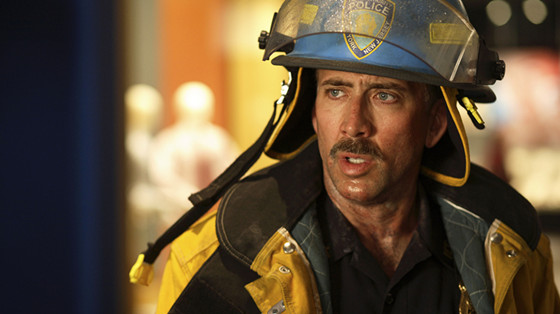
You’d think a collaboration between Oliver Stone and Nicolas Cage (arguably the most audacious forces in front of and behind the camera in nineties studio filmmaking) would result in a bombastic, chaotically charged film-going experience. Both their collaborations to date, however, (World Trade Center and Snowden) just happened to be created in more mature, quieter stages of their careers.
In World Trade Center, Cage plays an earnest and affable police officer trapped under the rubble of the World Trade Center 9/11 wreckage. Cage is motionless, only able to use his face and voice, for a large portion of the film. Considering how freely Cage’s stylized mannerisms make their way into his most renowned works, it’s a remarkable and subtle performance in a very controlled and well-intentioned film.
In Snowden, Cage’s screen time is limited (appearing in only a few short scenes), but highly memorable. What makes his presence remarkable is that he takes a small role that primarily exists for exposition and foreshadowing, then turns it into a quirky, likable, and entertaining presence. His character, an embittered but comical look into the consequences of messing with Big Brother, subsequently winds up being one of the most memorable aspects of a solidly executed film.
9 (tie). Racing With the Moon (1984), Peggy Sue Got Married (1986)
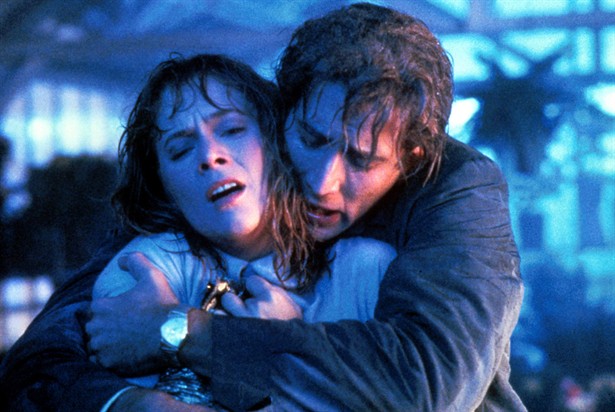
Cage’s early work showcased a lot of raw emotion, experimentation, and all-out boldness. He wasn’t quite as finessed as he was when he hit mainstream success in the nineties, but he was almost always impossible to ignore.
In Racing With the Moon, Cage is nothing short of a diamond in the rough. His burgeoning sensibilities are obviously already brewing under the surface in his portrayal of an irresponsible and rambunctious teenager who is prepping to go off to fight in World War II with his childhood friend (portrayed by a very young Sean Penn). The role gave Cage a lot of room to develop himself at the time, and the resulting supporting performance is one that gives the otherwise entertainingly placid film a very welcome dosage of energy.
With Peggy Sue Got Married, Cage took a huge risk in how he chose to portray a role that was, by design, supposed to be a fairly straightforward romantic interest to Kathleen Turner’s lead character. Instead of going the obvious ingénue route, he turned the role into something of a surreal caricature of lost and awkward youth (reportedly, Turner wanted Cage to be fired early on in the filming process).
The film, which is something of a time travel fantasy combined with a whimsical nostalgic drama about growing up and growing old, features Cage’s character at two different stages in his life. First, we see him as a middle-aged man: grizzled and hunched over, with no sign of hope or dreams left in his defeated demeanor. Then, we see his teenage self: an extreme geek with a high-pitched voice (modeled after Pokey from The Gumby show) who wants to think he’s the coolest guy in school.
Cage’s performance isn’t just out of place in the sweetly charming film (which is also a curious departure for the film’s director and Cage’s uncle, Francis Ford Coppola), it’s from another planet altogether. Somehow, however, it manages to work in spite its downright weirdness.
Ultimately, the awkward innocence, likability, and eventual tragedy of Cage’s character somehow comes across so much more than a young actor showing off in his uncle’s movie. What could have easily been a plain role turned into something much more interesting and in-depth in Cage’s hands. In spite of how alien his performance is it’s surprising how much humanity he believably evokes with it.
8. Honeymoon in Vegas (1992)
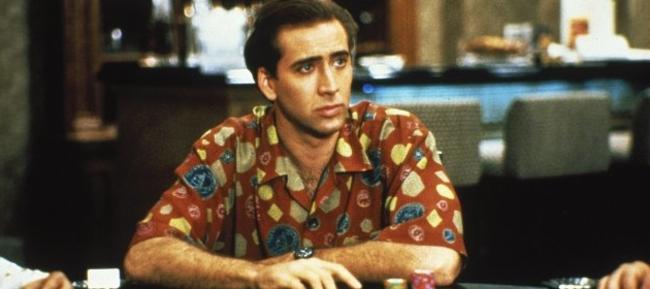
Probably the most underappreciated comedic performance of his career, Honeymoon in Vegas is a largely forgotten gem in Cage’s cannon of work. In the film, he plays a highly neurotic private investigator with extreme Mommy issues who accidentally loses his fiancé in a poker game to a gangster played by James Caan.
Cage’s mannerisms, timing, and maddened energy suit the character and his absurdist struggle perfectly while also carrying the tone of a very smart, silly, and somewhat strange comedy.
7. Kick-Ass (2010)
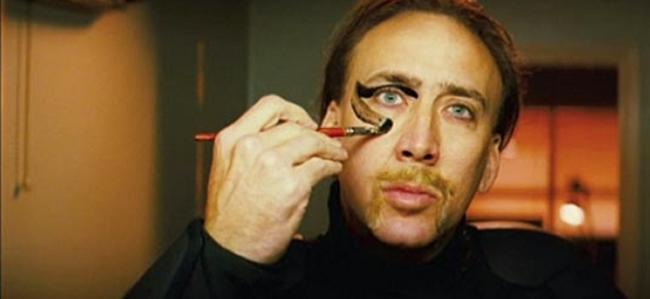
Kick-Ass has certainly had its success and has it’s fans. Cage’s supporting portrayal of Big Daddy (a crime-fighting, Batman-like superhero whose sidekick is his foul-mouthed ten year-old daughter), however, should have garnered him an entire new generation of fans. It also should have been an internet-freezing sensation when it was revealed that the makers behind the film’s sequel didn’t figure out a way to bring him back for, at the very least, a memorable cameo.
Cage’s work in Kick-Ass, once again, borders on caricature and satire (as does the tone of the entire film). Obsessed, self-important, and charmingly fascist, Big Daddy is a torn and tragic character who has lost the ability to tell right from wrong in his quest to fight crime. He’s also an unaware dork who doesn’t quite understand how uncool or unintimidating he is, which makes it all the more shocking when we see how far the character’s dark side takes him.
It’s a wild, weird performance that perfectly fits the fabric of a wild, weird film. Perhaps that’s why Cage’s work in it hasn’t gotten the lasting attention or respect it’s deserved. That and, admittedly, it was hard for anything in the film, even a force as large as Cage’s, not to be overshadowed by the very inappropriate and scene-stealing presence of a ten-year old Hit Girl in the form of Chloe Grace Mortez.
6. The Weather Man (2007)
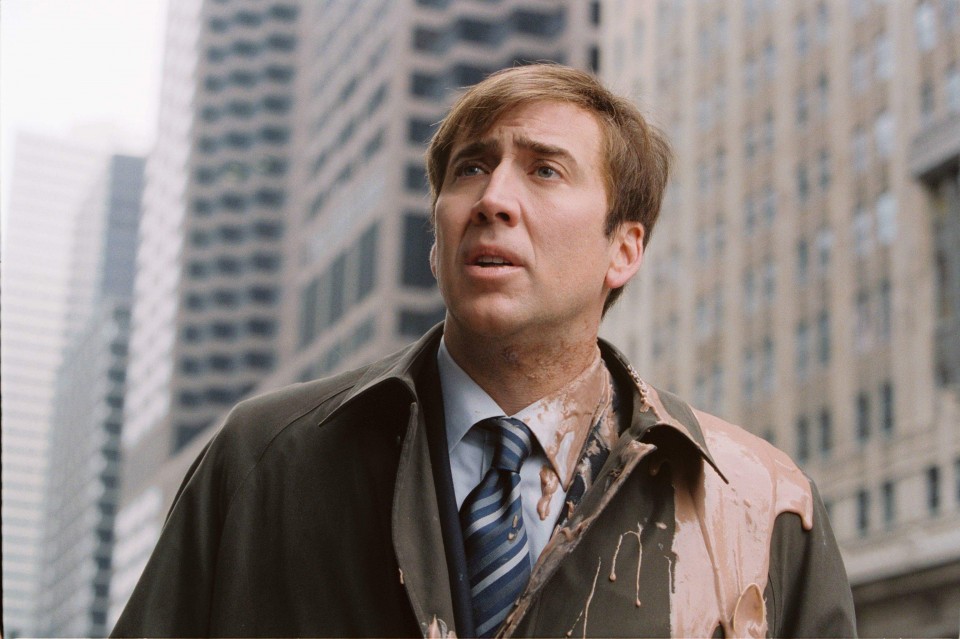
Cage’s abilities as an actor have taken him in many different directions in many different films. The Weather Man, an underappreciated dark comedy/drama, allows Cage to explore numerous layers, levels, and tones within one complex and deeply flawed character.
Playing a well-intentioned but hopelessly self-absorbed Chicago weatherman who is trying to gain the love of his estranged family, Cage broke new ground for himself in the film. It’s just too bad that no one noticed.
The emotional dynamics Cage explores in The Weather Man aren’t stylized or larger than life, they’re internalized, but only in a way that Cage could accomplish. He’s able to be funny when he’s at his most humiliated, and able to play a hopelessly boring and somewhat infuriating character in the most quietly entertaining way.
Cage showed successful restraint for perhaps the first time in his career with his character in The Weatherman, a film and performance that need a closer look to gain the appreciation they both deserve today.